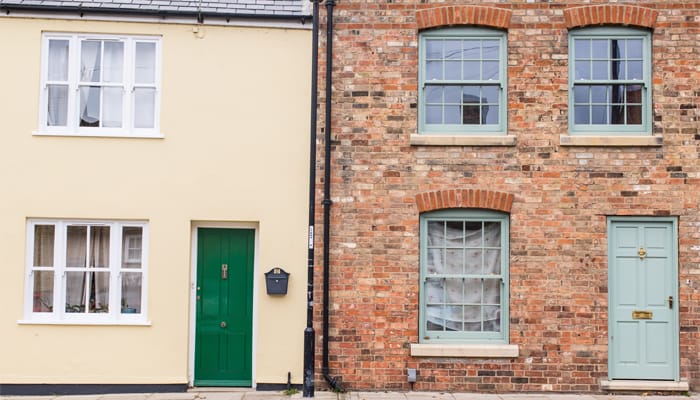If you’re a landlord, renting multiple properties can be a lucrative business. A rental empire can be an ideal source of income for an entrepreneur, providing you choose decent tenants, and your properties are in locations where they will increase in value.
A single let property means you’re renting out your property to one individual, a couple, or a family. It means one tenancy, rather than just one person. Renting multiple properties means you have a portfolio of different homes to rent out to different, unconnected tenants.

© drimafilm / Adobe Stock
Where to start
There are advantages and disadvantages for a landlord. While multiple lets means extra income, it also involves more responsibility, in terms of paperwork and maintaining all the properties in your portfolio. When you’re new to renting, first familiarise yourself with the important factors to take into consideration.
Find the best area where you’re likely to make the most income from your investment in terms of rental price growth and buy-to-let capital gains. If you’re not familiar with the area, check online before branching out with another property to get an idea of average prices. If you’re not satisfied with what you see, opt for somewhere more lucrative.
It can be a good idea to have properties within different locations, as if for one reason or another property prices take a nosedive, you will still have the cushion of decent prices in another area to offset any losses.
Have you enough capital?
Investing in buy-to-let homes involves committing thousands of pounds to purchase the property, typically taking out a mortgage.
You can make big gains if house prices rise, but if they fall, you may take a hit, so never mortgage yourself up to the hilt and leave yourself short if the market dips. You need to have enough income to fall back on so you can weather any temporary storm.
Property investing can pay off handsomely, both in terms of income and capital gains, but you need to go into the market with your eyes wide open and acknowledge the potential risks. If you know someone who already rents out multiple properties, have a chat with them about their experiences to make sure you know what to expect. The more research you do and the greater knowledge you have, the better the chances of your investment paying off.
Be prepared
You must be prepared for every eventuality and for the responsibility renting multiple properties involves. Don’t think of it as some “get rich quick” scheme, or you’ll be disappointed. You will need a plan that you can stick to so that you may avoid encountering problems further down the road.
Have an action plan drawn up in case you don’t get the property rented out right away. If this happens, you will still need to pay the mortgage – make sure you have enough money in the pot to cover this, just in case.
If something breaks, you will need to fix it, so you must have the means to carry out repairs. Even though you will need buildings insurance, you will probably have to fix repairs such as a leaking roof more quickly than the insurance will pay out. You must have enough money to cover the costs and claim it back later from the insurance, as you can’t leave tenants with a problem.
Should you hire a letting agent?
Decide if you will manage the properties yourself, or whether you’d prefer to pay a management company to do it for you. Many landlords who rent multiple properties are prepared to pay the extra money to have a letting agent manage the portfolio on their behalf.
The more homes you have, the more responsibility it entails, so it depends how much time you’re able to spend personally on sorting out the rentals. Having someone else deal with things like drawing up the tenancy agreement, collecting the rent, carrying out checks and organising maintenance can make your life much easier and they are able to deal with unfortunate circumstances, such as a tenant failing to pay their rent.
What about the furniture?
Make sure you understand what’s expected when dealing with multiple areas of décor and furniture. Trying to kit out all your properties with individual items can be time-consuming and expensive. Furniture packages could help solve some of the stress!
Home furniture packages will include everything you need for immediate occupation, thus reducing the time it takes to furnish your rental properties and enabling you to sign up tenants more quickly.
Finding tenants
Research shows around 90% of people start their property search online, so unless you have a presence on popular sites such as Zoopla or Rightmove, you may struggle to find the tenants you’re looking for. The sites on which you advertise will have an effect on the type of tenants you appeal to.
For example, young people will typically look on sites such as Gumtree and SpareRoom, while advertising in local papers will usually attract an older audience. You may ask the tenants to provide references to ensure you get the right type of people.
If you’ve decided to go down the property rental road, Furniture Pack Solutions provides excellent home furniture packages which will be delivered, installed and neatly arranged in your properties to your exact requirements.
